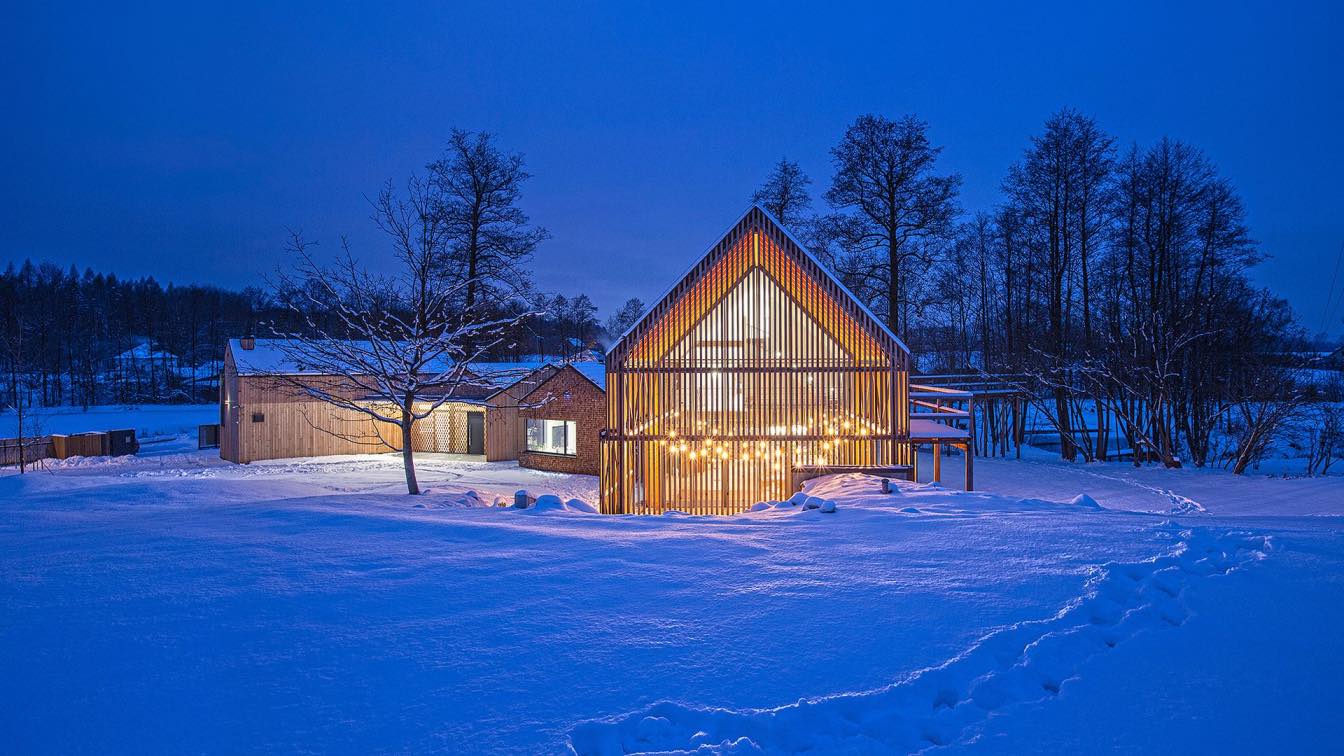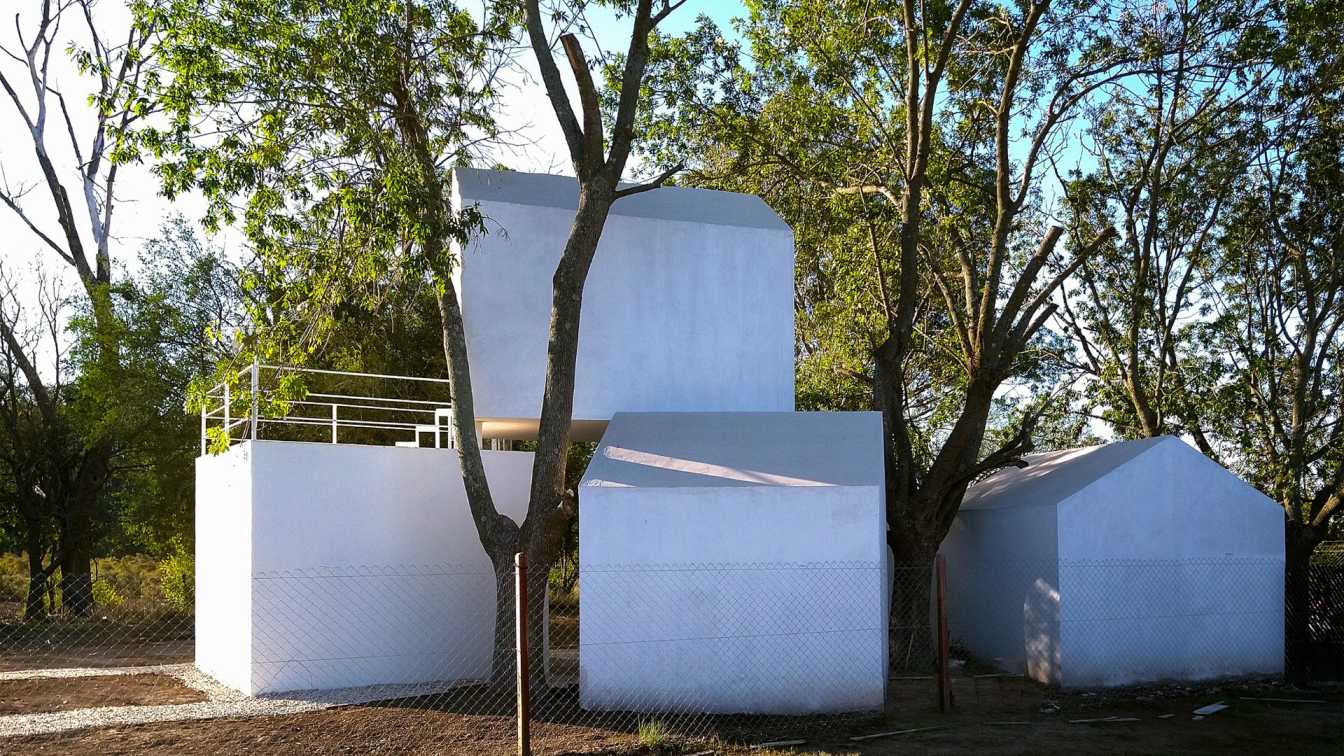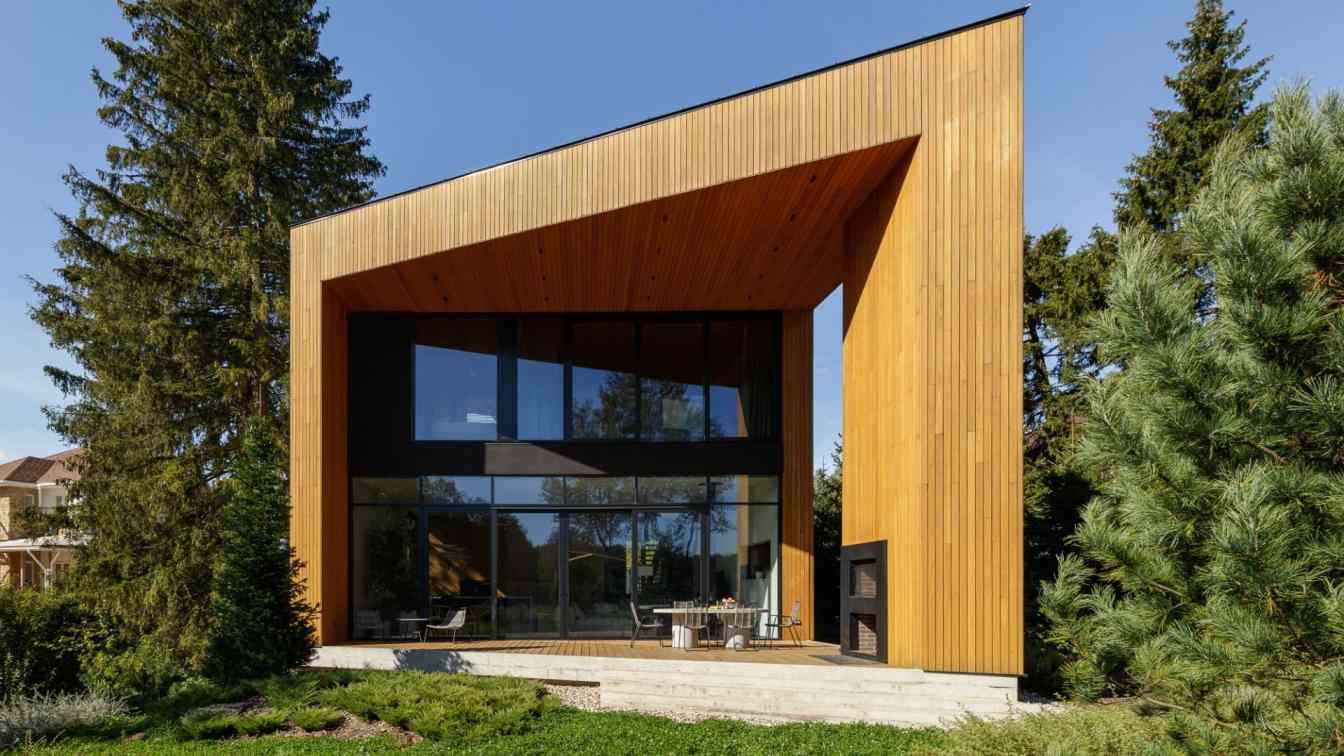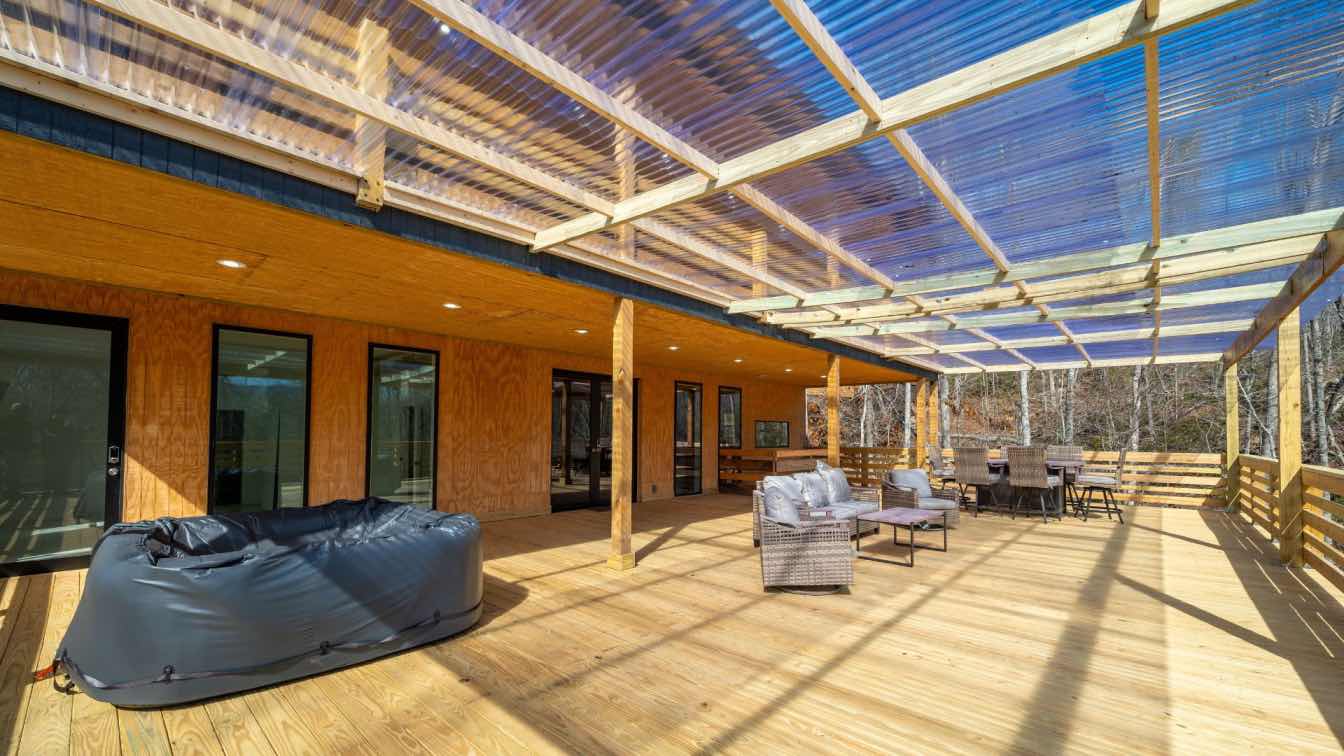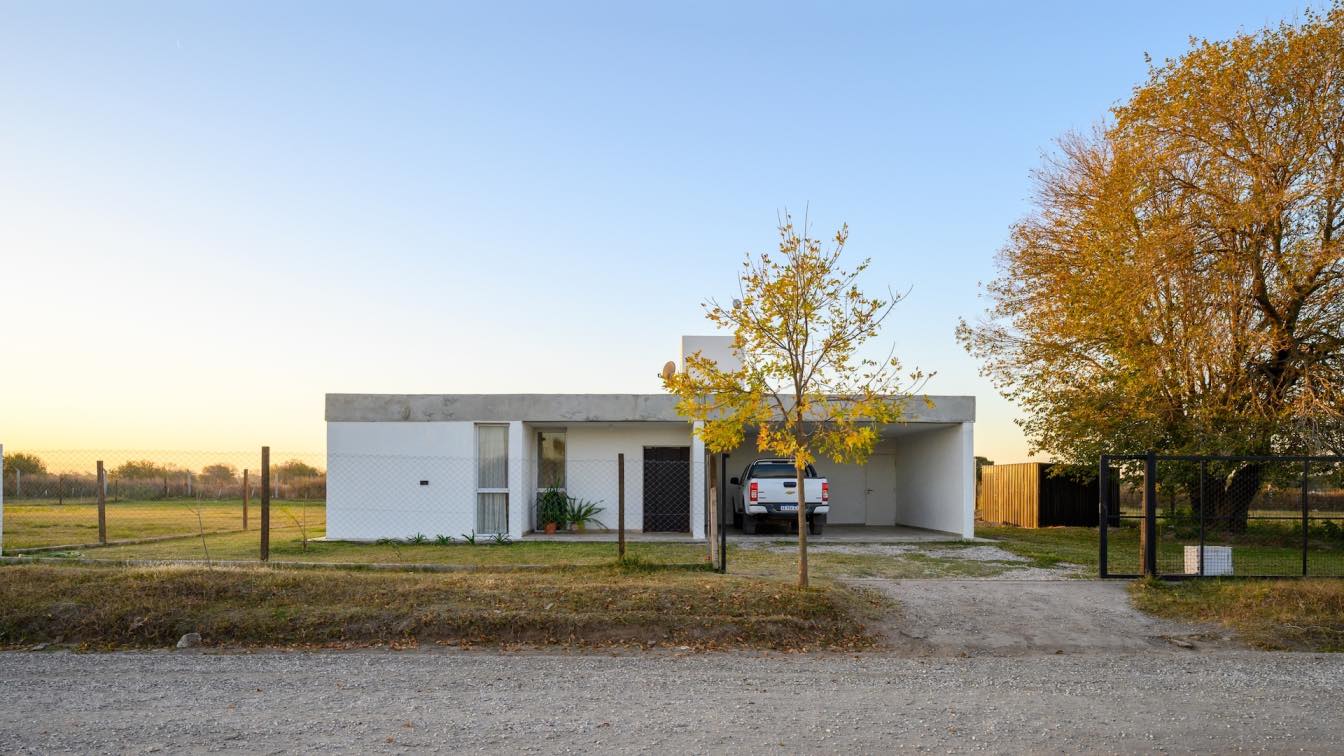BXB Studio: Modern Barns, The seemingly random scattering of barns was carefully defined by the surrounding landscape, the position of the sun and the function of the building.
The first barn, which is a garage, acts as a massive buffer separating the house from the road. The fifth and final barn accommodates the living area and bedroom with the wooden deck leading to the surrounding wilderness. It is set in the exact place where the original barn was situated. This is where we placed the main living area which replicates the true character of the original barn. Right next to it, we placed the barn accommodating the kitchen and we positioned it in a way that enabled its corner window to be used as an observation point for the entrance area, which can be found in the central barn and is characterised by its decorative and transparent wall, creating a portal. The barns accommodating the children’s rooms and studios have an open view facing the other side and are placed between magnificent trees that have been preserved.
Each particular barn was finished with different styles of wood texture to reflect the individual character of the historical buildings.

Old House
The next stage of the future development will include the creative reconstruction of the old house due for demolition. We proposed to restore its original, beautiful proportions, disturbed by extensions from later years. We have enhanced the entrance with a new roof, linking back to the original wooden ornamentation of the historic facade. Inside the house, we unveiled the original building material - red brick- to bring out its natural beauty.
The reconstructed tiled heating stove is displayed in the main, two-level space covered by a wooden roof. What distinguishes this house from others is the lack of a fourth facade in the traditional sense. The fully-glazed wall allows the structure of the house to be exposed to the outside and towards the fireplace terrace of the new house. The old house is surrounded with colourful plants and flowers characteristic of this type of rural, historical building.

The Farmhouse in the context of sustainable development, history and tradition
This design is not only about a modern building or the transformation of a historical homestead into a modern home, but also about a unique and sustainable space embedded in the area, which would be the synthesis of local tradition, a beautiful landscape and good function.
When creating the individual barns of The Farmhouse, we were guided by a harmonious approach to nature, primarily to the play of light and shadow, terrain, existing greenery and infrastructure. Large, sunlit glazing has been shaded with an openwork facade, terrace roofs or dense greenery. Thanks to this, the house will not be exposed to excessive sun exposure in the summer. Guided by the principle of sustainable development, we made sure to preserve the valuable tree stand. To better integrate the building with the extremely valuable and beautiful landscape, we designed a footbridge on the first floor and platforms on the ground floor, which then adjust to the topography of the area.
The entrance portal of the new house opens up with a glass facade facing the adjacent courtyard and the future main entrance of the old house reconstruction opposite.The glass facade has an openwork wooden translucent curtain in front of it, which relates to the original ornamental feature that decorates the entrance of the old house. Locating the entrances on a common axis strengthens the dialogue between the old and the new.
The design philosophy with regards to „The Farmhouse” project places great emphasis on the relationship between man and nature with reference to place, history and tradition. This relationship stems from exploring the cultural context, as well involving contemporary structure and design. We think in BXB studio that this kind of openness with regard to heritage and tradition allows us to discover a creative richness, full of great creativity, and that this kind of creation of space gives our buildings durability and timelessness. We believe that in this way, our buildings are not merely anonymous or unspiritual and that they are something more significant than just a modern building.

Architectural model of the Polish Farmhouse
The Farmhouse project was created simultaneously on a sheet of paper, with a computer model and with a physical model that evolved in our model workshop. Thanks to all of this, we have fully exercised the possibilities of perception and creation of space. The final architectural model allowed us to check the final design solutions. This all represented a useful tool for architects and engineers at subsequent stages of technical design development. The architectural model of the Polish Farmhouse was shown on the award winning movie production ArchiPaper created by Unique Vision Studio.
















































































